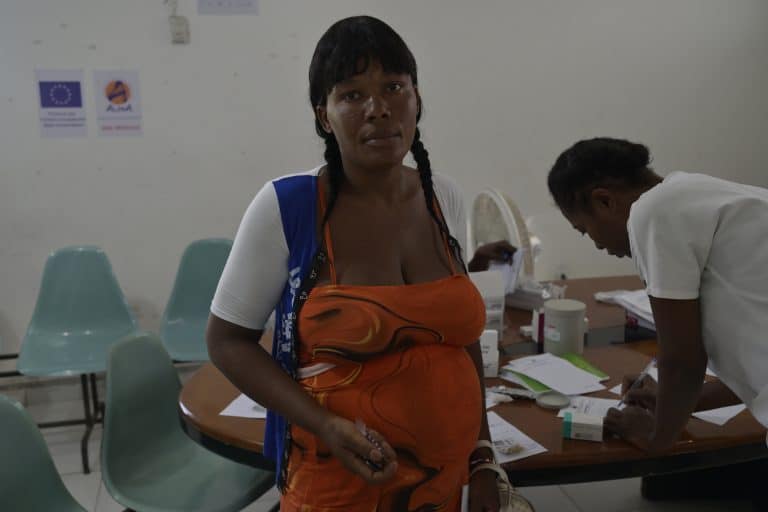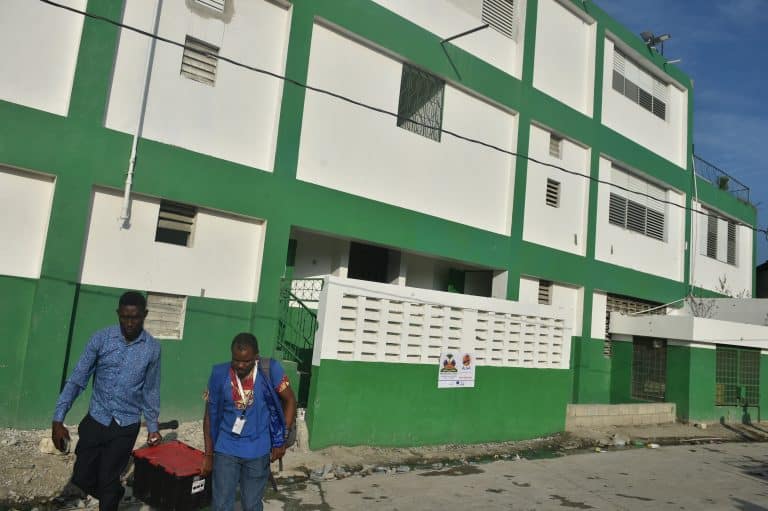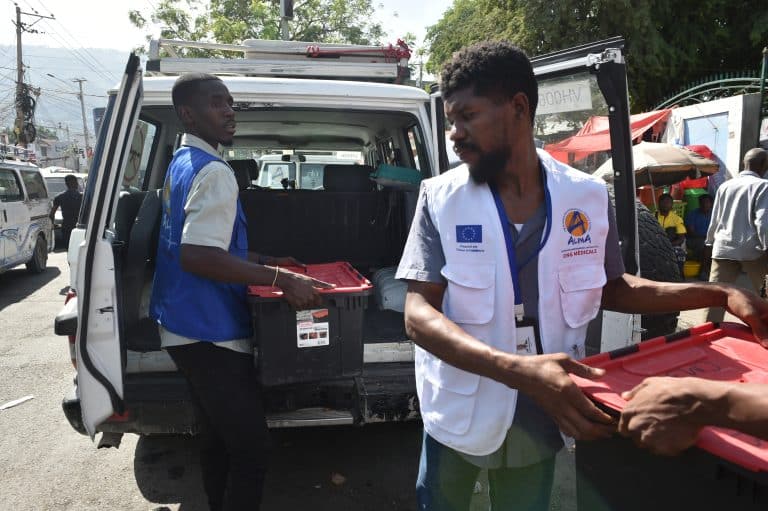Haiti: ALIMA’s Actions on the Ground
📍 ALIMA presence since: 2024
🛡️ Mission status: ongoing
🏥 Beneficiaries in 2024: 12,202
🔹 Key areas of expertise: Health system strengthening | Women’s health | Epidemics and emerging diseases
Humanitarian situation in Haiti
Since February 2024, violence in Port-au-Prince has displaced over one million people, many of them multiple times. Around 65% of these displacements have occurred within the metropolitan area.
With limited shelter options, schools, institutions, and communities are doing their best to host displaced individuals. However, in a country plagued by years of crisis, this response remains fragile.
According to local authorities, 85% of the metropolitan area is now controlled by criminal groups.
📌 Key figures of the crisis in Haiti
Medical aid and humanitarian response in Haiti
🏥 Strengthening the health system
In response to the collapse of the Haitian health system, ALIMA is supporting local health structures by:
- Rehabilitating partially operational health centers
- Ensuring a supply of medicines and medical equipment
- Training caregivers and community health workers
The goal is to ensure sustainable access to healthcare for the most vulnerable populations.
📊 In 2024, ALIMA provided medical care to 12,202 people in the hardest-hit areas.
👩⚕️ Women’s health
Pregnant women and newborns face major risks due to limited access to prenatal and obstetric care.
ALIMA is addressing this by:
- Providing pregnancy follow-up and obstetrical care
- Supporting births in secure structures
- Training local health professionals in the management of neonatal emergencies
📊 In 2024, 1,448 pregnant women received care through ALIMA-supported programs.
🚑 Conflict and displacement
The capital, Port-au-Prince, is the epicenter of the violence, with thousands of families forced to flee their homes. ALIMA is responding to this emergency by:
- Deploying mobile clinics to treat displaced people.
- Supporting reception centers for populations in distress.
- Offering medical and psychological care to victims of violence.
📊 In 2024, ALIMA deployed three mobile medical teams to assist displaced individuals.
ALIMA highlight project in Haiti
Emergency medical response to strengthen access to care
Since 2024, ALIMA has been responding to the multifaceted crisis currently affecting the Port-au-Prince Metropolitan Area (ZMPAP), by working to strengthen access to free, quality primary healthcare and psychosocial support in the municipalities of Cité Soleil, Port-au-Prince, Delmas, and Croix des Bouquets.
📌 Why this project matters
- A large influx of displaced people living in precarious conditions.
- Local healthcare facilities that are non-functional or severely understaffed.
📌 Project goals
- Reduce mortality and morbidity among affected populations, especially displaced and vulnerable communities.
- Improve access to both primary and secondary care, including through mobile clinics and collaborations with hospitals.
- Strengthen the care of survivors of gender-based violence (GBV) with medical and psychosocial support.
- Fight malnutrition, especially in the most affected areas (Port-au-Prince, Delmas, Cité-Soleil, Croix-des-Bouquets).
- Train community health workers to ensure early detection of diseases and promote hygiene awareness.
- Provide psychosocial support to individuals impacted by the crisis
- Strengthen the health system by reopening closed medical facilities.
On the ground
Our News from Haiti

Chancerelles: A Historic Maternity Hospital Reborn Amid the Crisis
In Cité Soleil, a municipality of the Port-au-Prince metropolitan area weakened by years of armed violence and the absence of public services, the Isaïe maternity

Port-au-Prince: In Cité Soleil, the CHAPI Hospital Comes Back to Life After Years of Neglect
In Cité Soleil, one of Haiti’s most vulnerable urban contexts, the CHAPI Hospital, located in the Boston area, is coming back to life after being

In Port-au-Prince Camps, Access to Healthcare Remains a Major Challenge for Displaced Populations
In Port-au-Prince, thanks to its mobile clinics and a strong network of community health workers, ALIMA is restoring regular access to healthcare for displaced populations,


